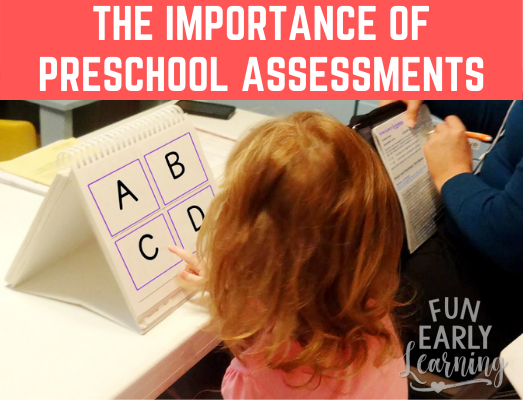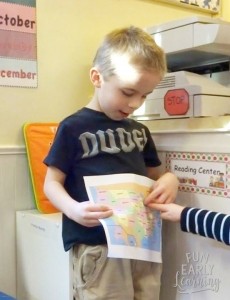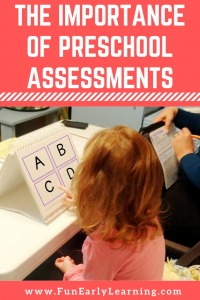
Today we’ll discuss preschool assessments and whey they’re important to kindergarten readiness. Welcome to our several part series where we walk you through how to make sure your child is academically READY FOR KINDERGARTEN!
Have you ever sat and watched a group of preschoolers playing? Or listened to the stories they tell each other? It is one of my favorite things to do! It’s both heart-melting and hilarious to listen to children play together. Their imagination, creativity and energy seems endless.
If you missed part 1, you can read it here.
As a teacher, I want to take children’s imagination, creativity and independence and channel it towards activities that help prepare them for kindergarten and beyond. The first building block I use is an assessment. I need to figure out where each child is individually so that I can help them to succeed. Every child is different. Every child’s needs are different. It’s important that we help and teach each child specific to their learning style and academic needs. ‘One size fits all’ doesn’t work in education.
We’re all familiar with assessments, right?! We have all had to take them growing up from entering kindergarten to taking our college entrance exams. Like me, you probably have vivid memories of assessment days… Memories which may be days filled with seemingly endless questions upon boring questions.

We don’t do boring at Fun Early Learning! Learning should be FUN and interactive! I’ll walk you through how to easily assess children while making it fun, how to interpret the results, and next steps.
Why are preschool assessments so important?
- They allow us to help prepare children for kindergarten.
- We can address each child’s individual needs. For example, if you have a child who is struggling with letters, they need more materials to help them. Children who are learning quickly may need more advanced materials, such as learning sight words.
- They allow us to identify if a child may be special needs or need intervention.
- We can plan instruction for children individually and as a group.
- We can alter our program based on results. For example, if a child is still struggling with letter sounds you have already covered, you can go back and reteach and reinforce those skills. It’s important to ensure each child masters the skills you’re teaching before moving them ahead to the next.
How to get started with preschool assessment
Throughout this series, we’ll go through all 6 sections of the assessment separately.
- Social and Emotional Standards
- Reading Standards
- Writing Standards
- Speaking and Listening Standards
- Mathematics Standards
- Physical Health and Development Standards
Stick with us through this great series to get all the information you need to make sure your child is ready for kindergarten! Check out our next article in this series: Is your child socially and emotionally ready for kindergarten?


